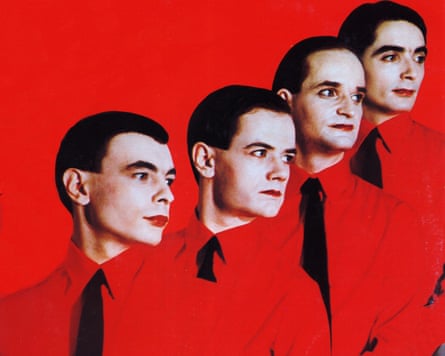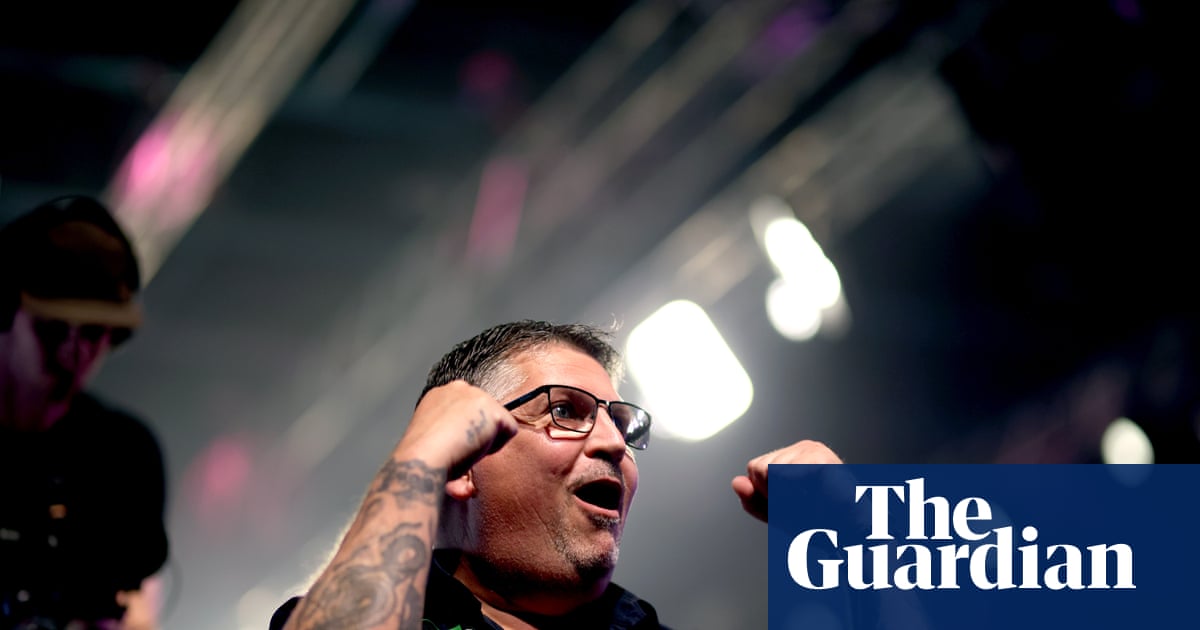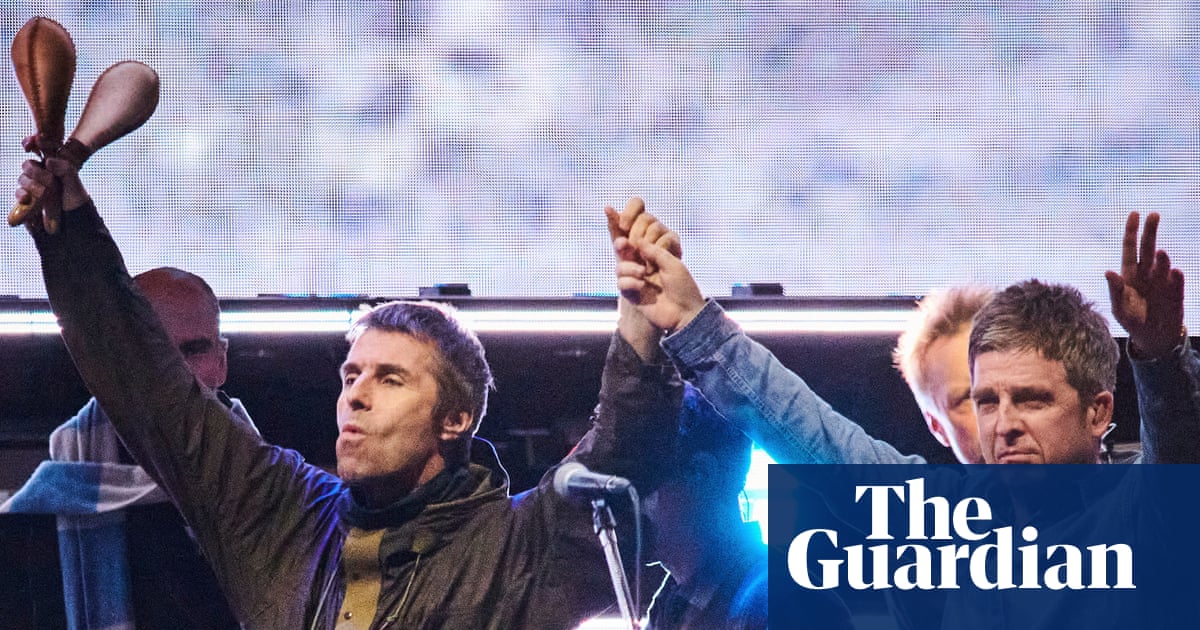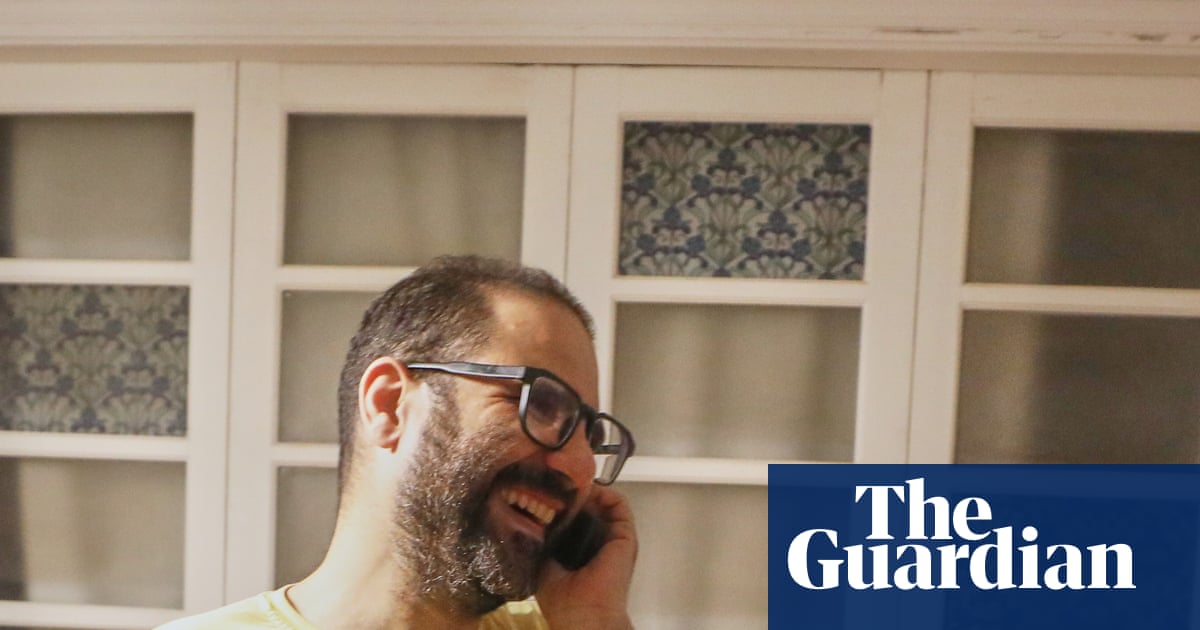He was a pioneer of electronic music whose band Kraftwerk redefined the sound of pop and influenced artists from David Bowie and New Order to Coldplay and Run-DMC.
Now the electronic equipment and musical instruments that Florian Schneider used to create some of the band’s best-known songs in the 1970s and 1980s could fetch hundreds of thousands of dollars when they are sold at auction next month.
Music for a solo project that Schneider was working on just before he died from cancer aged 73 in 2020 can be heard for the first time in a video about the auction shared with the Guardian.
Alongside his suitcase synthesiser, his flute and his vocoders – which he used to make his voice sound like a robot – fans will get a chance to buy nearly 500 of Schneider’s personal possessions in the sale by his estate.
These include his collection of more than 100 brass and woodwind instruments, numerous Polaroid photographs, his sunglasses, the passport he used while touring until 1978 and his VW panel van, which he custom-painted grey.
His Panasonic Panaracer bicycle, which he rode in Kraftwerk’s Tour de France music video and is depicted on the single’s artwork, will also go under the hammer on 19 November.
after newsletter promotion
The total estimated value of the sale, which will be held by Julien’s Auctions at the Musicians Hall of Fame and Museum in Nashville, Tennessee, is $450,000 to $650,000 (£335,000 to £485,000).
Giles Moon, the head of music at Julien’s Auctions, said: “Kraftwerk were groundbreaking – they were one of the first bands that used synthesisers and they created music that no one had ever heard of before. It was very unworldly and it moved music forward in a way nobody had ever seen, in a totally different direction that most people probably didn’t think was even possible.”
Other bands found their tracks “mind-blowing”, he said. “They suddenly discovered this new pathway in music that Krafwerk created. It inspired a lot of bands to move in the direction of using synthesised electronic music.”
A vocoder that is likely to be the one Kraftwerk used on their albums The Man Machine in 1978 and Computer World in 1981 is expected to sell for $30,000 to $50,000.
An EMS Synthi AKS suitcase synthesiser thought to be the one used on Kraftwerk’s 1974 album Autobahn is valued at $15,000 to $20,000.
“It’s a very early synthesiser, in the form of a suitcase, so it’s quite unusual,” Moon said. “It’s the first synthesiser they acquired in the early 1970s when Florian decided to stop using classical instruments. He would attach it to his flute and use it to process these amazing sounds.”
The flute, an Orsi G alto that Schneider used on stage with the synthesiser until 1974, is valued at $8,000 to $10,000. “There’s footage of Kraftwerk playing in what’s widely called the first techno concert, which was in Germany in 1970. Very uncharacteristic sounds come out of the flute and it is quite remarkable to see the reaction of the crowd, because this was the first time that most people had heard this type of music,” Moon said.

Among the lowest-priced items is a collection of about 90 Polaroid photographs Schneider took of his woodwind and brass instruments, which includes a few snaps of him with his saxophones. It is on sale for $100 to $200. “You’re looking at $1 to $2 per Polaroid,” Moon said.
Other quirky objects, including a transparent, bright yellow acrylic guitar and a “very unique” 16-inch model of a fly, which was mounted on Schneider’s studio wall, are priced at $200 to $400. Schneider’s gold-framed green-lens sunglasses and Polaroid photographs of him wearing them are listed at $300 to $500.
A spokesperson for Schneider’s estate said the auction fulfilled the musician’s desire for his instruments and personal collection to “continue living beyond him”. “He always believed that they are meant to be played and shared – not left unused or gathering dust in storage,” she said. “He wanted his equipment to find their way to people who would truly value them: musicians, collectors and those inspired by the art of sound.”
Reflecting on Kraftwerk’s influence, Stephen Morris, a drummer for Joy Division and New Order, said: “From the Joy Division days, we loved Kraftwerk. Autobahn was an album that made us all sit up and say: what’s this? They were doing something different … something completely new – they were consciously rejecting the past. A lot of New Order’s approach was like that. We were determined to start from the beginning again.”

 2 months ago
68
2 months ago
68

















































